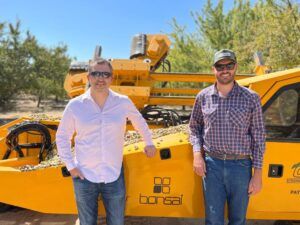Last Thursday, the US House of Representatives Agriculture Committee held a hearing on agriculture technology and data utilization in Washington, DC in preparation for the next Farm Bill which will be drafted early next year.
Congressman Rick Crawford (R) of Arkansas said “Farmers have a deep sense of mistrust where data is concerned around the idea of uploading their data into the cloud because there are no laws explicitly protecting that data.”
Congressman Rick Nolan (D) of Minnesota added that farmers have a right to be skeptical because their data could easily be used for “manipulation of market.”
At the same time, Witness Billy Tiller added that consumers are demanding a new level of transparency, and data is the only way to provide this throughout the supply chain. “If these millennials want their food to talk and they do, they want traceability, the only way we’re gonna get their food to talk is with connectivity all the way back to the field,” said Tiller.
Witness Todd Janzen of Janzen Agricultural Law laid out three pain points for the growth of big data in farming: a lack of trust of agtech companies on the part of the farmer, the possibility of losing control of their own data when uploading to cloud-based storage, and a frustration with the complexity of the legal agreements they have to sign.
So big data solutions are necessary in order for farmers to become more efficient and meet consumer demand, but it’s often unclear what’s in it for the farmer, who bears the brunt of the risk and the expense. The witnesses laid out possible solutions for this friction:
Good Data Practices Certification
The American Farm Bureau Federation consulted with various stakeholders in the data equation to come up with the Privacy and Security Principles for Farm Data in November 2014. The 13 principles lay out rules of the road for data collection and the agreements between agtech companies and farmers range from who owns the data to how contracts should be worded and what proper uses of data are. The principles cover:
- Education
- Ownership
- Collection, Access and Control
- Notice
- Transparency and Consistency
- Choice
- Portability
- Terms and Definitions
- Disclosure, Use, and Sale Limitation
- Data Retention and Availability
- Contract Termination
- Unlawful or Anti-Competitive Activities
- Liability & Security Safeguards
The federation issues the AgData Transparent Seal – a paid certification for data collecting agtech companies. So far eight companies have obtained the seal. “There are still a lot of companies that should go through the certification process that haven’t today,” said Janzen, whose law firm that evaluates companies seeking the seal.
Read more about the AgData Transparent Seal here.
Data Coop
Witness Billy Tiller shared the growth of the Grower Information Services Cooperative (GiSC) with the committee. GiSC is a farmer-owned cooperative storage system for data that offers free membership as well as cloud-based data capture software.
Said Tiller, “Unlike the data captured and communicated on typical technology and information platforms for consumers, such as social media platforms, farm operation data is, in essence, intellectual property – the farmer’s trade secrets and “know-how.” Farmers are hesitant (and rightfully so) to entrust that data with third parties in which those farmers have no vested interest.”
Since its formation in 2012, GiSc has grown to have 1,400 members in 41 states.
Pay for Data?
Janzen mentioned that though, right now, most farmers are buying data storage from precision ag companies, the end result of this slow conversion to tech-enabled precision agriculture may be farmers getting paid for their data. To some extent, it has already begun. Back in January, Farmobile (which is AgData Transparent Certified) began paying farmers for their data.





